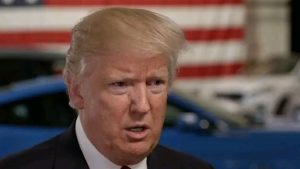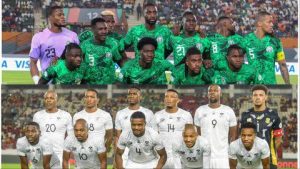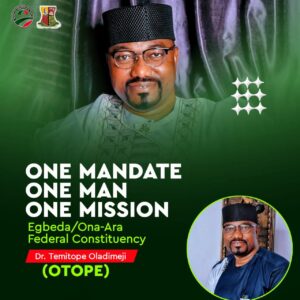How else could anyone have described the “Subsidy is Gone” declaration of President Bola Tinubu at his inauguration in May 2023 than to say it was “a shock that came without a strategy”?
The President in his impulsive and arrogant posture wanted to be seen as that fearless and courageous leader, but in reality, vainglorious guy who took a ‘buzz problem’ (like fuel subsidy) head-on!”
How could a conscientious president deploy the auspices of two incredibly wicked economic policies to ‘push the citizens of his country into the ocean when he knows they couldn’t swim in a swimming pool?
Whether the government wants to hear this or not, we will keep asking this crucial question: The subsidy is gone, yes. Fuel prices have quadrupled, true. Cost of living is speeding to suffocate the living, also true. But where are the savings from the subsidy removal which was promised to be invested in quick-fix people-oriented projects and programmes?
Former Minister of Transportation in the General Buhari administration, Chibuike Amaechi, speaking at his 60th birthday event in Abuja few weeks back, raised concerns about what he perceived as a misdirection of national resources, alleging that subsidy removal gains were being siphoned into “private pockets.”

“If I were president, yes, I would pursue some of the policies they are pursuing, but ask what the failure is: the failure is that the gains of those policies are in their private pockets,” he said.
“At one point, we were paying between four to five trillion naira as subsidy; where is the money now? If it had been injected into the economy, you would not be hearing complaints.”
OTOPE Foundation: A Quiet Revolution of Compassion, Redefining Community Development
And in an issue as dire as the alleged disappearance/misappropriation or rather blurred accounting of whatever savings Nigeria is making from cancelling fuel subsidy, it was the Special Adviser to the President on Social Media, Dada Olusegun, that the Presidency could source to explain to Nigerians the where about of the savings. This really shows how serious the government and its people are taking all of us.

Addressing Amaechi’s claims regarding fuel subsidy savings, the presidential aide said the ex-minister was fully aware of the fiscal damage caused by the subsidy regime, noting that the Nigerian National Petroleum Company Limited (NNPCL) had stopped remitting revenues and resorted to advance crude sales to cover costs.
“In 2022 alone, the FG’s subsidy bill was ₦4.39 trillion — nearly half of what Nigeria spent on petrol subsidies over a nine-year span from 2006 to 2015,” he said.
So if Nigeria paid about N4.4 trillion as subsidy in one year (2022) that means the nation would have saved well over N10 trillion since the policy was cancelled in May 2023, abi?
The big question still remains: Where are the savings because the government is still borrowing, borrowing, borrowing?
ALSO READ: Just Like Buhari Promised, Keyamo Disclosed What Tinubu Will Do Regard Fuel Subsidy Removal
All we are asking for is just honest and detailed explanation with facts and figures showing what was saved so far and how it was expended.
If the government believes or rather is convinced as said by the President’s Aide that, “the real gain of subsidy removal was not in direct cash savings but in halting ‘unsustainable borrowing’ and stopping the mortgaging of future oil revenues,” so how do you justify the reckless borrowing spree that’s ongoing by the same government?
Opinion: Why Otope’s 2027 Vision Could Redefine Governance in Egbeda/Ona Ara Federal Constituency
It’s important we get this straightened out: the 50 percent NNPCL started remitting January 2025 as cleverly brought in by the President’s aide in attempt to show something is being done by the government is not from crude oil revenues but half of the savings this year from the subsidy withdrawal that was implemented almost three years ago.
The burden of reform is not to inflict pain—it is to exchange today’s suffering for tomorrow’s stability. True that the fuel subsidy vanished, but in its place came only silence and more borrowing. The very government that claimed “we must save” is still taking loans like tomorrow is rented land.
EXPLAINER: Can Stun Gun Discovery Send Adefarasin to Jail?
Why has the cost of living doubled, but leadership luxury/financial unruliness quadrupled? Where is the transparency?
If you say you saved money, show the people the savings. If you ask for sacrifice, deliver the fruits. But if all the people see is: more poverty, more hardship, and more borrowing, then what was removed was not just subsidy, but trust. This is the truth!
The government should have known by now that when pain brings no progress, when sacrifice bears no fruit, the people will stop believing. And that’s where we are in this country today! Nobody believes whatever the government says, they just keep quite minding their individual businesses.
EXPLAINER: Can Stun Gun Discovery Send Adefarasin to Jail?
HOW PRESIDENT TINUBU CRUSHED THE GRAIN CARTEL AND STABILIZED FOOD PRICES
Nigeria is a member country of the Organisation of Petroleum Exporting Countries (OPEC). So, the ‘big elephant question’ is, why is Nigeria the only OPEC Member country that’s talking about petrol subsidy and petrol subsidy removal issues?
Don’t other OPEC Member countries use petrol in their countries? If they don’t seem to have issues with petrol pricing, and have no arguments regarding petrol subsidy, which model of petrol pricing did they adopt?
Why didn’t Nigeria study and adopt the same model as other OPEC Member countries?
Since the model adopted by other OPEC Member countries is underpinned by the effective operations of local refineries, could it be that Nigerian leaders or a section of the business community ensured the local refineries are moribund, so that they would continue to defraud the country by pushing the under-recovery narrative? Thank God we now have the African elite Dangote Refinery onstream at home here even though the ordinary Nigerians are yet to see and enjoy a single benefit from that plant still because of the dubious pricing templating by stakeholders in the nation’s downstream.

Interestingly, on the issue of floating the Naira in its foreign exchange reforms, the Presidential Aide while defending the decision, revealed that the previous multiple exchange rate system cost Nigeria over ₦13.2 trillion between 2021 and 2023 in what he termed “FX subsidy losses” — money he said “went exclusively to private pockets.” So the government also made some savings on this front.
And the big question still remains: Where are the savings because the government is still borrowing, borrowing, borrowing?
Pain without direction is punishment and sacrifice without return is abuse, abi? Families now choose between feeding and surviving as the cost of living breaks bones. Meanwhile, those who are supposed to be our leaders continue in their reckless or rather mindless affluence without recourse to the suffering of the masses. God go judge all of una wallahi!
(Ifeanyi Izeze writes from Abuja and can be reached on: iizeze@yahoo.com; 234-8033043009)

Join our WHATSAPP Channel for real-time news updates & job alerts:
https://whatsapp.com/channel/0029Va9qtzXHwXbIyBGtjk2o









